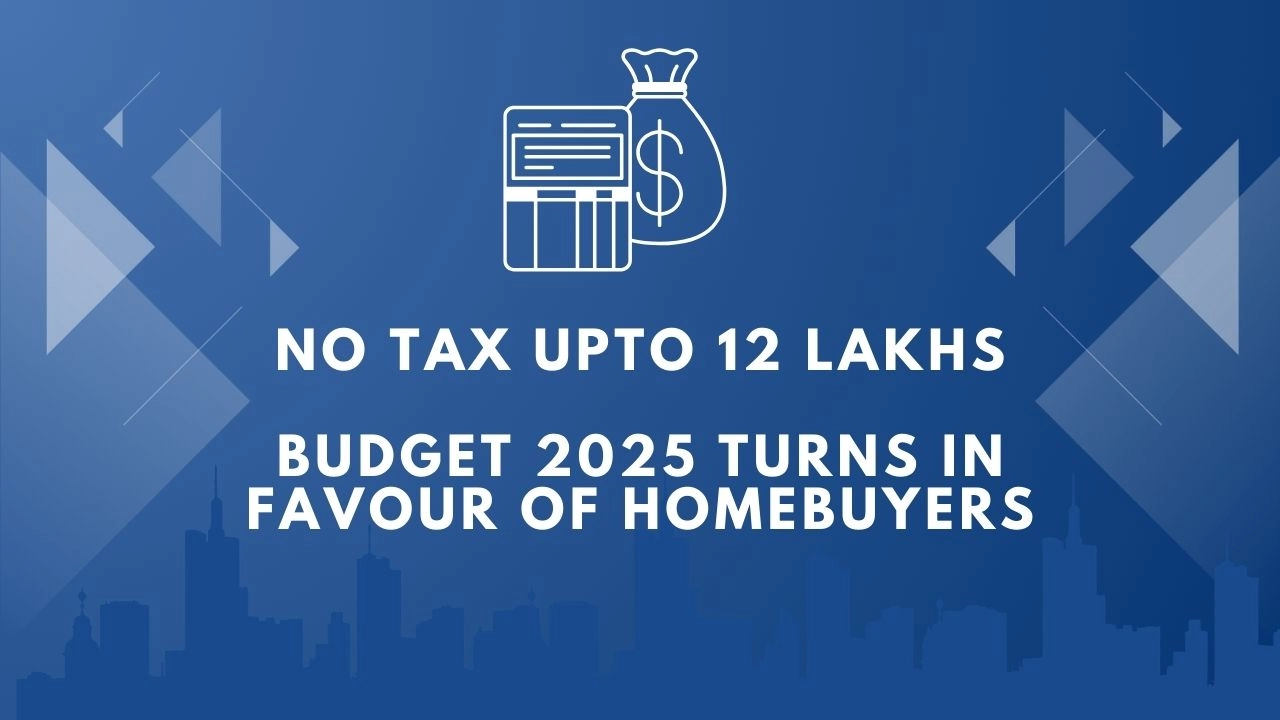The union budget for 2025-26 was presented in the Parliament, by Finance Minister Nirmala Sitharaman on Saturday (February 1, 2025)
For homebuyers, the Union Budget 2025 has changed the game by providing various types of tax breaks and incentives. Initiatives from the government, such as lowering taxes and increasing access to affordable homes, are expected to have a long-term effect on the real estate market and homebuyers.
In an attempt to raise middle-class homeowners' disposable income and affordability, the Finance Minister declared on February 1 that under the new regime, income tax would not be collected up to ₹12 lakhs, or up to ₹12.75 lakhs including standard deductions. Spending power will likely increase as a result, which will fuel demand for homes and investments in properties.
In her February 1 Budget statement, Finance Minister Nirmala Sitharaman stated, "The new structure will significantly lower the taxes of the middle class, leaving more money in their hands, encouraging household consumption, savings, and investment."
Among the major announcements made by Finance Minister Nirmala Sitharaman on Saturday were tax improvements under the new tax regime and the exemption of a second property from taxation for notional rental income. Homebuyers will receive the following benefits from Budget 2025:
Tax Reforms for More Savings and Smarter Investments
A major positive effect of the budget is the increased capacity of the tax refund under the recently introduced tax system. People with annual incomes up to Rs 12 lakh (Rs 12.75 lakh for salaried ) get relief from paying personal income tax.
"This move significantly enhances disposable income, allowing individuals to save more for housing investments," says Adhil Shetty, CEO of Bankbazaar.com. The middle-class benefits from greater financial freedom due to the simplified tax system, which boosts disposable income, savings, and investment in property and the stock market.
Second Homes with No Taxes
By letting two homes be declared as self-occupied, Budget 2025 removes all restrictions including the tax obligation on notional rental income.
"With Budget 2025 allowing taxpayers to claim nil valuation for two self-occupied properties, homeownership is now more inviting," Shetty adds. Before, homeowners felt it was difficult to utilize the exemption because tax benefits were conditional. But now the elimination of these restrictions streamlines the procedure and motivates people to purchase second houses without being concerned about hefty tax obligations.
For instance, a Mumbai homeowner who previously had to pay tax on an alleged rental income annually for a second residence in Delhi will no longer be required to do so, which will simplify tax filing and save thousands of rupees in taxes.
SWAMIH Fund 2: Reviving Stalled Housing Projects
Homebuyers who were paying EMIs for under-construction homes while renting elsewhere now have respite thanks to the 50,000 housing units that the Special Window for Affordable and Mid-Income Housing (SWAMIH) has already finished installed projects. The government has established SWAMIH Fund 2, a Rs 15,000-crore blended finance facility backed by the government, banks, and private investors, to build on this success. By accelerating the completion of an additional one lakh housing units, the new fund hopes to provide hope to thousands of families who are waiting to move into their ideal homes. An additional 40,000 homes will be finished in FY 2025, bringing the total number of completed homes to about 50,000.
Higher TDS on Rent: Benefiting Both Landlords and Tenants
In Budget 2025, the annual TDS deduction threshold for rent was raised from Rs 2.4 lakh to Rs 6 lakh. In addition to providing more direct cash flow for landlords, this shift lowers the paperwork and compliance load on tenants.
For instance, Tejas Sharma's monthly rental income is Rs 50,000. Before this, his tenant had to deduct 10% TDS from rent, which meant he only got Rs 45,000. There will be no TDS deductions now that the threshold has been changed, providing a straightforward deposit of Rs 50,000 into his account.
Thus, by lowering income tax obligations, eliminating away with presumed rental income taxation, raising TDS levels, and encouraging affordable housing projects, Budget 2025 significantly minimizes the burden on potential buyers. The budget prepares the ground for a strong real estate market for homebuyers by offering financial freedom, tax simplification, and government-backed programs for projects that have stalled.

